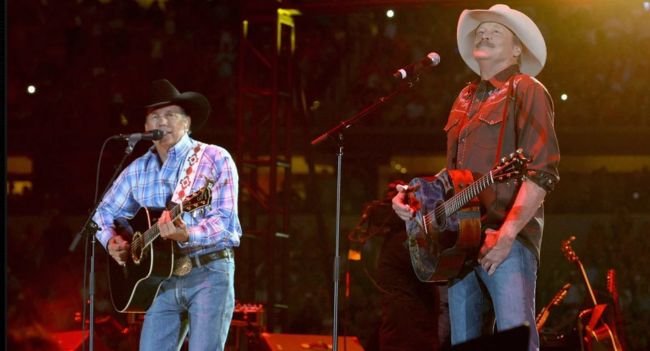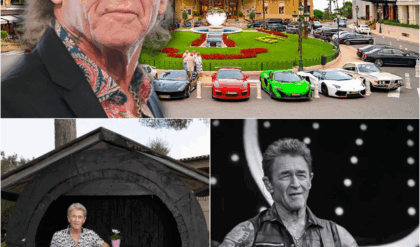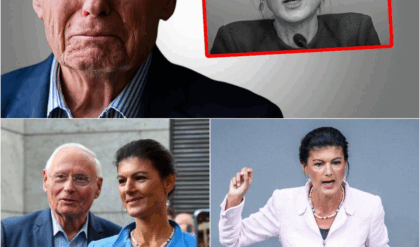
Country music is unlike any other genre when it comes to how much performers and fans really care about fate and fortunes of the music. They get mad when country music takes a wayward turn away from what it’s supposed to be. They celebrate when it returns back to its true roots and purpose. Country music isn’t just mere entertainment to them. It’s the story of their lives set to song. It’s sacred.
Over the years, artists and performers have participated in country protest songs whenever the genre veers too far off the path. In fact, there have been so many of these country protest anthems, they constitute their own subgenre (#579 on the Country Dewey Decimal System). Some of these songs even became hits like “Are You Sure Hank Done It This Way” by Waylon Jennings that went #1 in 1975.
But arguably no country protest song ever had a greater impact than one written by Larry Cordle and Larry Shell called “Murder On Music Row.” Larry Cordle was the first to record the song for his bluegrass band Lonesome Standard Time. It was the title track to their 1999 album, which included a hearse and a crime scene on the cover. But it was who chose to record it next that would cement its fate in country music history.
George Strait and Alan Jackson weren’t exactly Outlaws, or even outsiders of any kind in country music, especially on October 27th, 1999 when they walked into the studio and recorded their own version of “Murder on Music Row” for posterity. As two of ’90s country’s most successful artists and staunchest traditionalists, they didn’t allow their success in the industry to get in the way of what they saw happening in country music, or to shy away from speaking up about it. And so they unexpectedly put their star power behind “Murder On Music Row,” and turned the country music world upside down.
“Murder On Music Row” is overt and unambiguous about its disgust with country music’s direction, utilizing a metaphorical “murder” to make its point.
Nobody saw him running from sixteenth avenue.
They never found the fingerprint or the weapon that was used.
But someone killed country music, cut out its heart and soul.
They got away with murder down on Music Row.
Yet it’s also important to note that the song isn’t entirely fiction. At the least, its title was based on actual events.
There was a real murder on Music Row ten years before in 1989. 23-year-old Cashbox Magazine employee Kevin Hughes was gunned down, and up-and-coming country singer Sammy Sadler was severely injured when someone tried to kill them for knowing too much about a country music payola scheme used to juice the Cashbox music rankings. “Murder On Music Row” was the notorious headline in the media about it, and it was only a matter of time before someone made it into a song.
What’s remarkable about the song is how timeless the verses have turned out to be, even 25 years later. The song was poignant to its time, prescient of the future, and evergreen in its message. Today, and perhaps forever, it will always feel relevant to lament,
For the steel guitars no longer cry and fiddles barely play,
But drums and rock ‘n roll guitars are mixed up in your face.
Old Hank wouldn’t have a chance on today’s radio
Since they committed murder down on Music Row.
But perhaps the most remarkable part of the protest song’s legacy is how well it ultimately was received, and by who. George and Alan’s version of “Murder On Music Row” was never released as a properly promoted radio single. It was officially the B-side to George Strait’s single “Go On,” which was a #2 hit in early 2000. It also appeared as a bonus track on Strait’s Latest Greatest Straitest Hits released in March of 2000.





